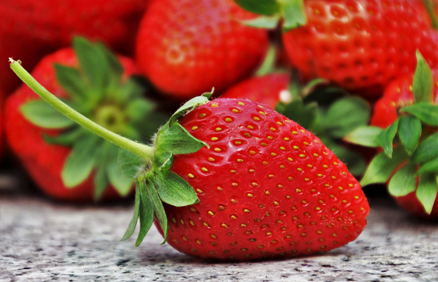Laws of shehechiyanu

In today's day and age can we still make a shehechiyanu on fruit? What about vegetables? This article provides a comprehensive list of the fruit that is still considered seasonal in Israel today, as of Tammuz 5778.
Shehechiyanu was instituted by Chazal, among other things, for partaking in seasonal fruit that does not appear in the marketplace for part of the year. When the fruit is in season and available in the marketplace, the joy of its renewed appearance warrants a blessing of shehechiyanu.
Things were much simpler in ancient times. Today we have to examine the situation and see which fruits (and vegetables) can still be considered seasonal, since many techniques are currently used to extend sales time for fruits and vegetables:
- Growing different cultivars of the same fruit/vegetable that ripen at different times
- Cultivation in different regions with various climates
- Hothouse cultivation (especially during the winter)
- Refrigeration and long-term storage
- Imports from abroad
- Pickling and roasting
- Aggrotech: using agricultural techniques for cultivation during different seasons
Torah VeHa'aretz Institute is involved in the comprehensive study of fruits and vegetables available in the marketplace. Our data (last updated in Tammuz 5778) was gathered from the Ministry of Agriculture, the Plants Production and Marketing Board, and discussions with farmers and salespeople.
Shehechiyanu on vegetables
The Rema writes that one should not make a shehechiyanu on a vegetable; some Acharonim explain that it is possible with seasonal vegetables, while others say this is only if the vegetable is considered important.
In our opinion, while shehechiyanu is not appropriate for most vegetables, there are a few vegetables that are seasonal and are unavailable in the marketplace at certain times: watermelon (rarely available in the supermarkets in the fall; shehechiyanu should be said in early spring); artichoke (unavailable in the summer); okra (unavailable in the spring); raspberry (unavailable in the winter); and strawberry (rarely available in the summer).
Seasonal fruit
The following fruits are seasonal in Israel, so a shehechiyanu is in order the first time they are eaten (during their season): acerola, apricot, black sapote, canistel, cherry, dragon fruit, durian, European plum (elongated), Japanese plum (round), feijoa, fig (fresh), goji berry (fresh), guava, loquat, lychee, mandarin orange, mango, mangosteen, marula, mulberry, nectarine, Panama berry, peach, Peruvian apple cactus, pomegranate, rambutan, star fruit, strawberry guava, sweet cherry, sweetsop, table grapes (optimally fresh grapes grown in Israel, early spring)
There are several fruits with questionable status vis-à-vis the definitions we outlined last week (there are seasons when they are less available or available but expensive, thanks to import, refrigeration, and long-term storage). In practice, we believe it is important to nevertheless make a shehechiyanu on them, especially when they first come out):
Nashi pear and quince (optimal on a new fruit grown in Israel, in late summer); blueberries (grown in Israel, early summer); grapefruit, pomelo, tangerine (clementine), orange (optimal when they first come out in early fall); green almond.
Fruit available year-round
For various reasons, the following fruits do not warrant a shehechiyanu, unless there is a new fruit on your tree or if you know that a new fruit in this category is available in the marketplace: avocado, walnut, hazelnut, pecan, pear, pistachio, olive, kiwi, moist date, and apple.
Shehechiyanu should not be said on the following: etrog, carob, lemon, sapodila (chico), white sapote, passionfruit, papaya, sabra (prickly pear), coconut, dry almond, kumquat.
For more information, see the article by our agronomist Yehuda Heller, published in Emunat Itecha 119 (Tammuz 5778). An English translation is available here. The article delves into the halachic aspects involved, along with a practical discussion of the availability of each type of fruit in the marketplace throughout the year.




